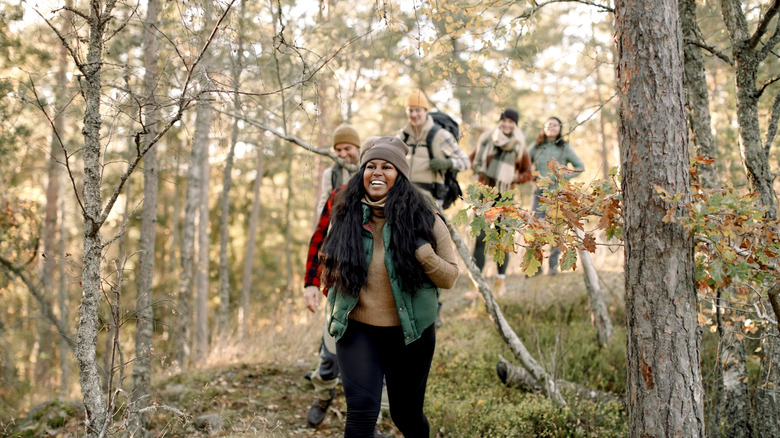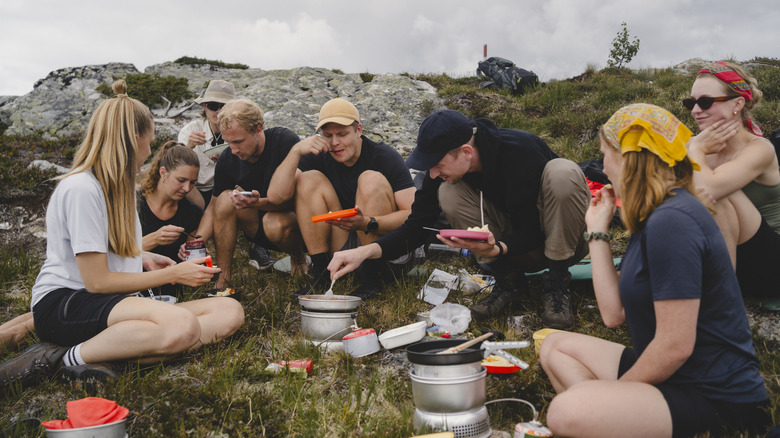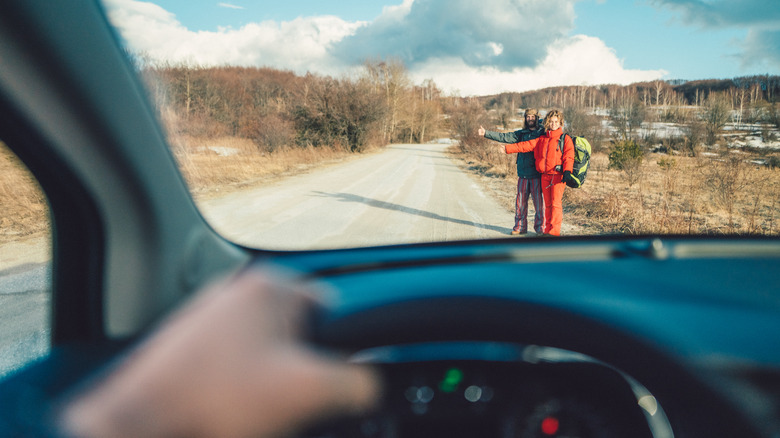What It Means When Hikers Refer To 'Trail Magic' And Why It's So Important
There are, quite literally, thousands of terms hikers use to communicate. While no one is capable of remembering all of them — except those most avid hikers who will travel around the world for a good trail – there are a few must-know hiking terms that everyone needs to know for their next outdoor adventure. And one of the most important terms hikers and non-hikers alike should know is "trail magic."
As defined by American Trails, trail magic is "The special unexpected pleasures (help or food) that happen and the generosity from others that trail users experience while on a trail trip." These "magical" experiences often happen at the most opportune moments. They can be as simple as someone offering moleskin pads or band-aids, as momentous as a ride into town on a bad weather day, or as kind and welcoming as a shelter for the night. However it occurs, trail magic has a truly awesome, we'll say it, magical quality to it.
Trail magic doesn't occur on its own, though. It takes a team of good-willed volunteers, known as Trail Angels, to make the trail magic happen. If you've ever been the recipient of a bit of trail magic, you have these angels to thank. And it really is those angels that make trail magic so important.
Why trail magic is important
While trail magic can happen on any hiking trail, it is most commonly associated with long through-hikes, such as the Appalachian Trail (AT) where the concept originated. This route has been intentionally kept wild since the first section of the trail opened in 1923. Hikers have to go without basic amenities and civilization interactions for long stretches of time. For first-time Appalachian Trail hikers, this can be difficult both mentally and physically. Therefore, when trail magic is encountered, it serves as a reminder of the general good nature of neighbors and community members.
However, it is important for this trail magic not to have any adverse effects on the ecological integrity of the trails in question. For example, food should always be offered in-person as opposed to left on the trail. Not only will this create trash mounds, which are environmentally harmful, it could ruin the wooded scenery so many want with a longer hike. Unattended food will also attract wildlife, and make dangerous animals, such as bears, more comfortable searching for food and interacting with people.
Still, the general concept of trail magic is solid, though it does require a certain level of trust in your fellow humans. While caution is always advisable, as there are bad actors – sometimes referred to as trail pirates – out there, the spirit of trail magic continues to keep hikers fed, sheltered, and safe.
How to be a trail angel
There are several different ways someone can go about being a trail angel. There is no formal association of trail angels. Rather, the whole idea is built around individual volunteerism. At its simplest, all you really need to do to be a trail angel is to walk your local section of a trail and offer beverages or food to passing hikers.
If you want to get more into the whole thing, there are several online forums you can be part of. Iconic hikes, such as the Pacific Crest Trail, Appalachian Trail, and Vermont's Long Trail, will have several forums where hikers and Trail Angels can interact. This is a great place to set up a group for hiker feeds, which are larger gatherings with lots of food, or even offer to be a host so hikers can take a shower, and spend a night not in a tent.
There are also numerous volunteer organizations for trails that help make it easier to be a trail angel, such as the Green Mountain Club and Appalachian Trail Conservancy. Hikers of the AT would do well to note when they pass through Appalachian Trail Communities. These are hiker-friendly towns that support hikers via community acts and local businesses. If you are a member of one of these communities, be a blessing to the hikers by offering them some kindness. It really goes a long way.


